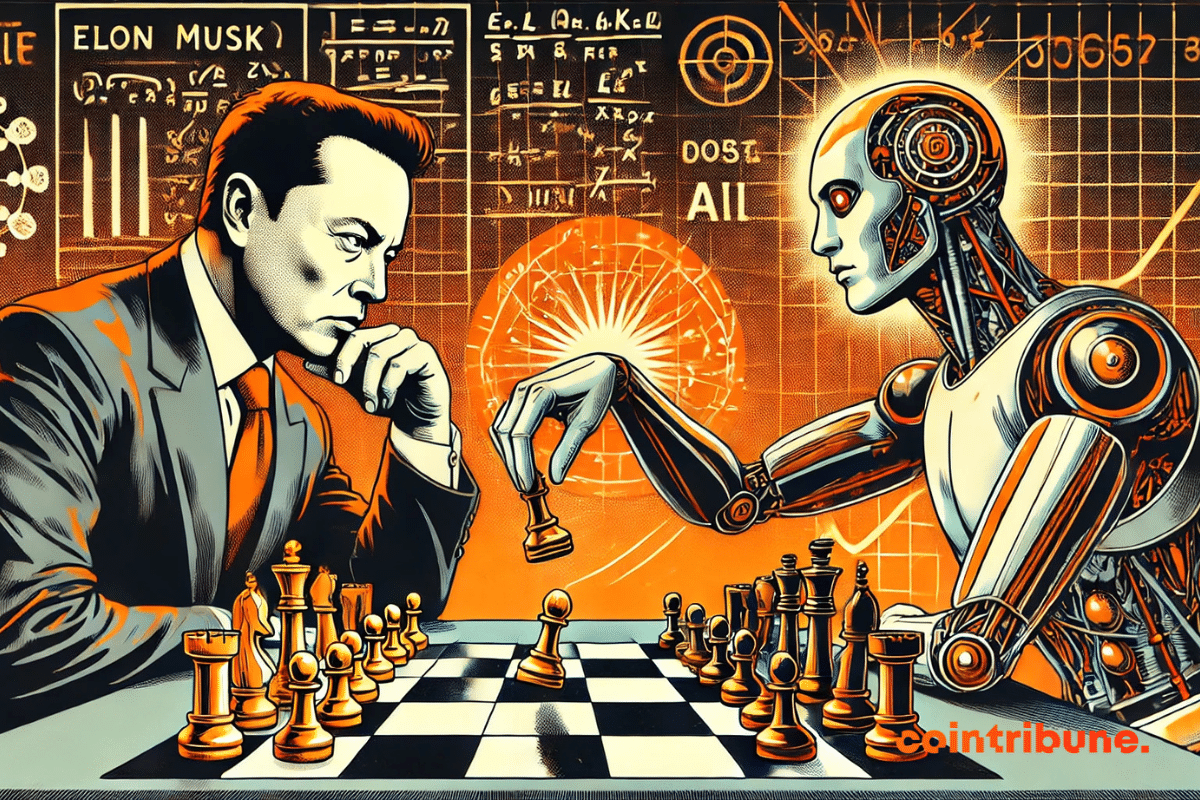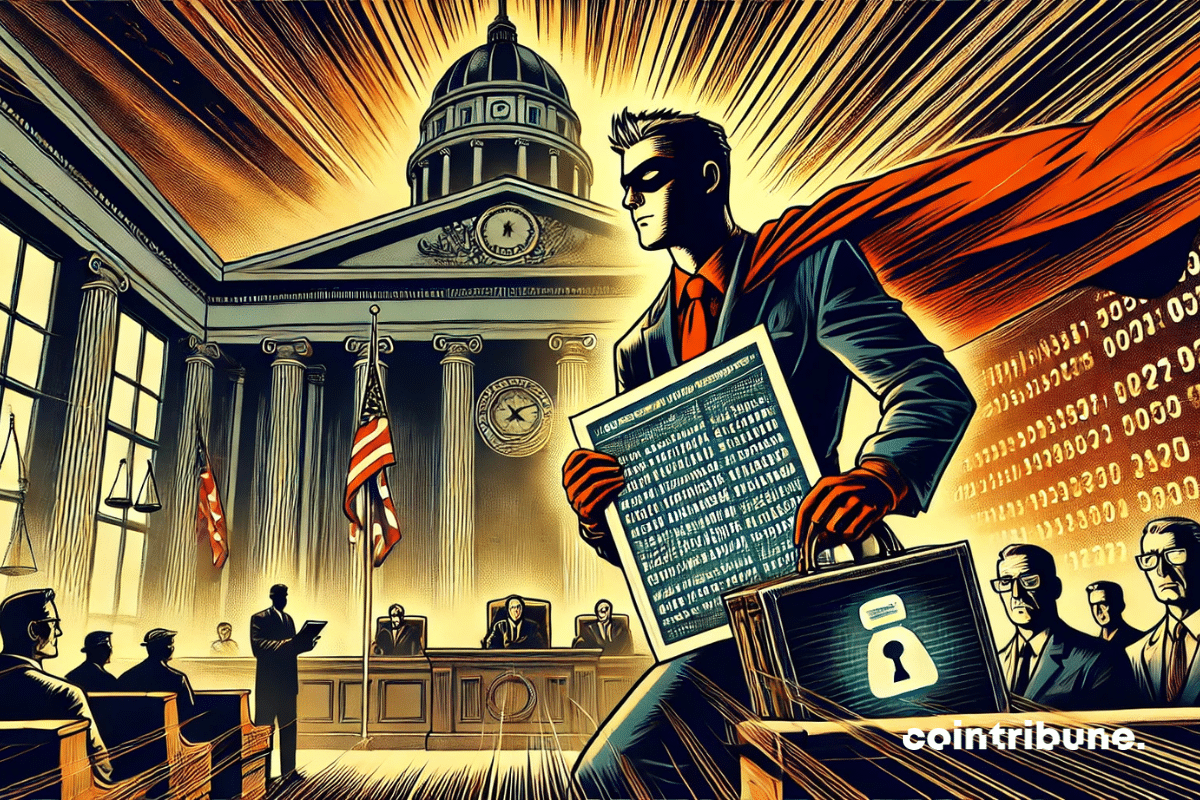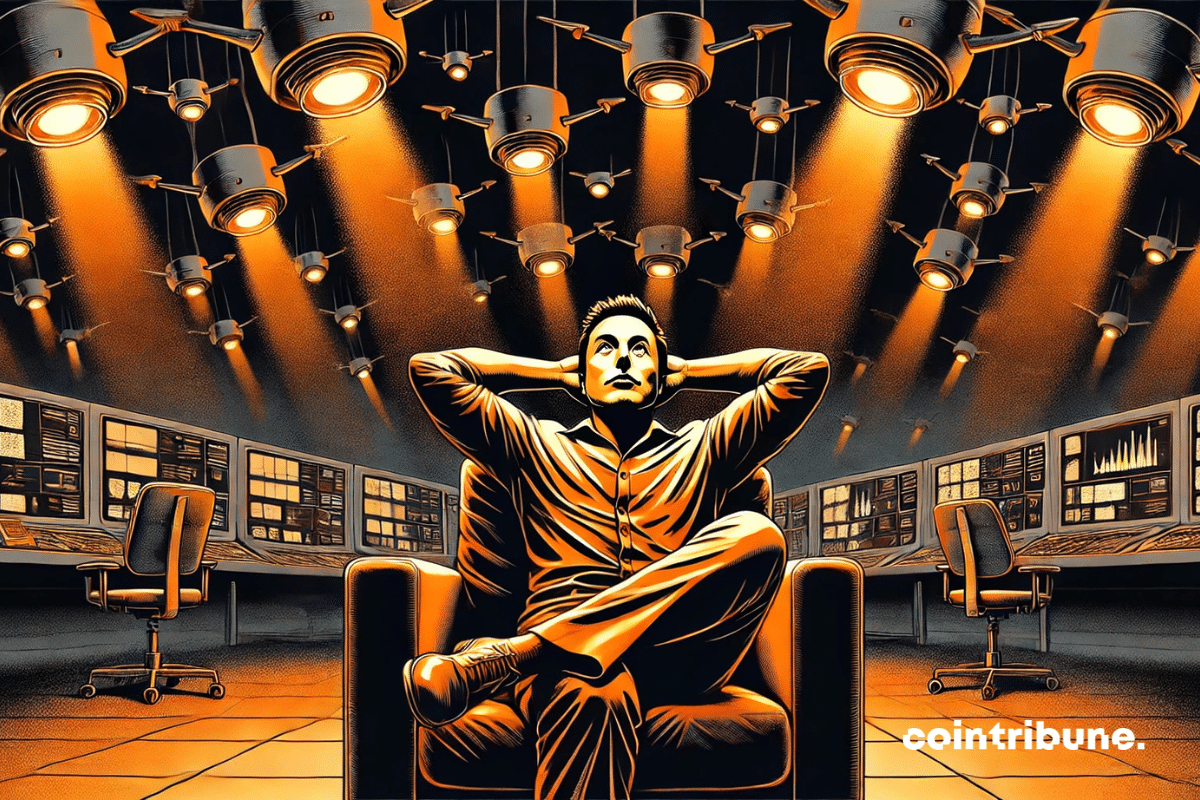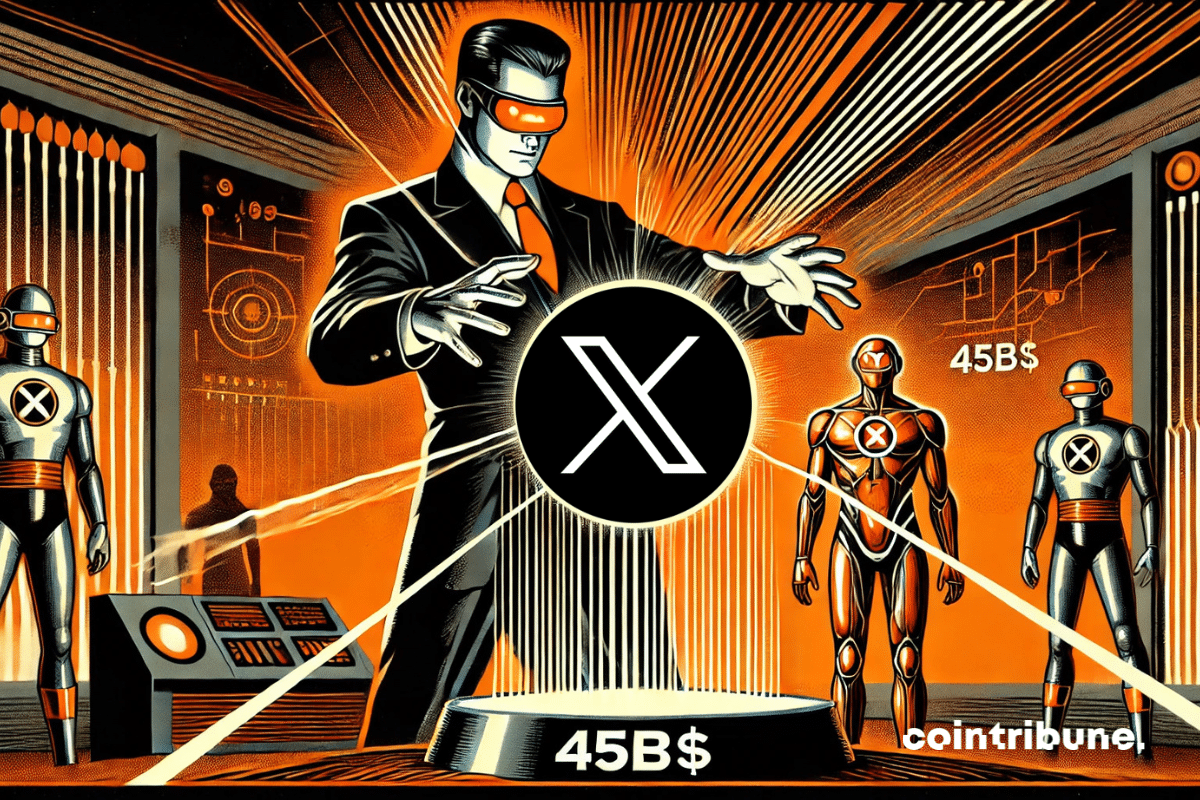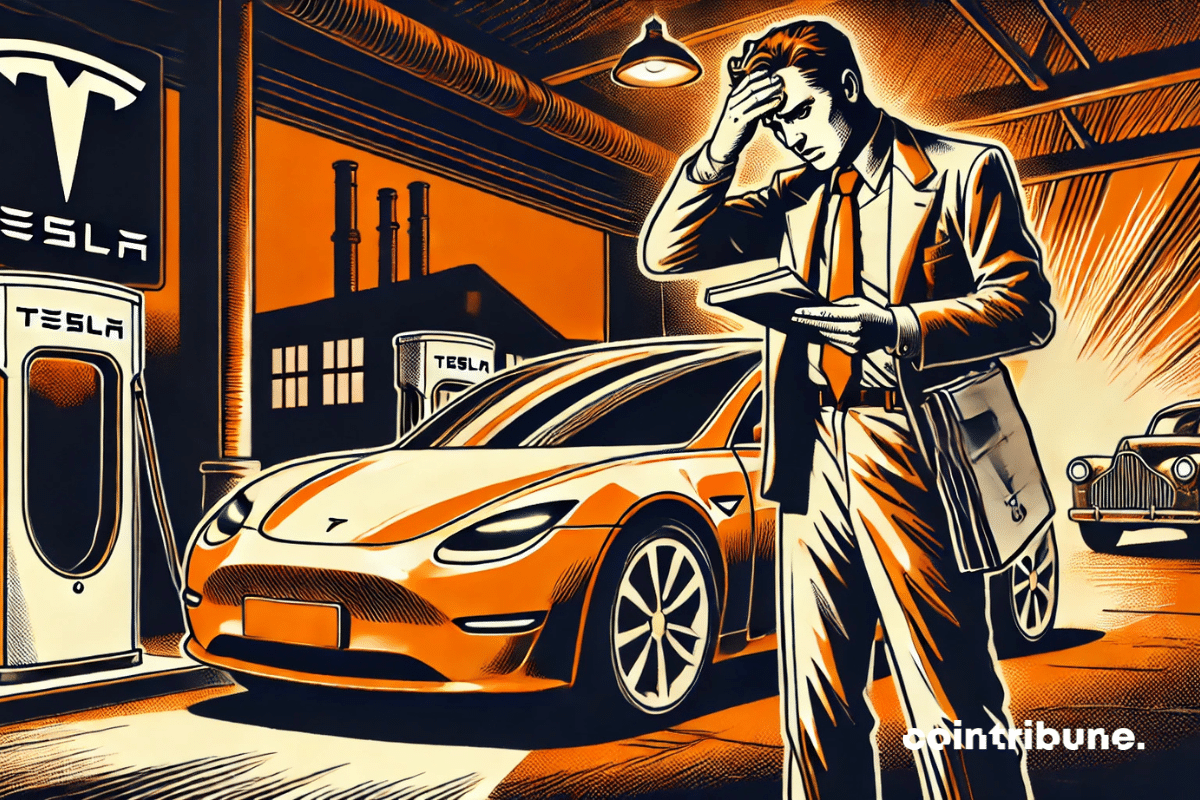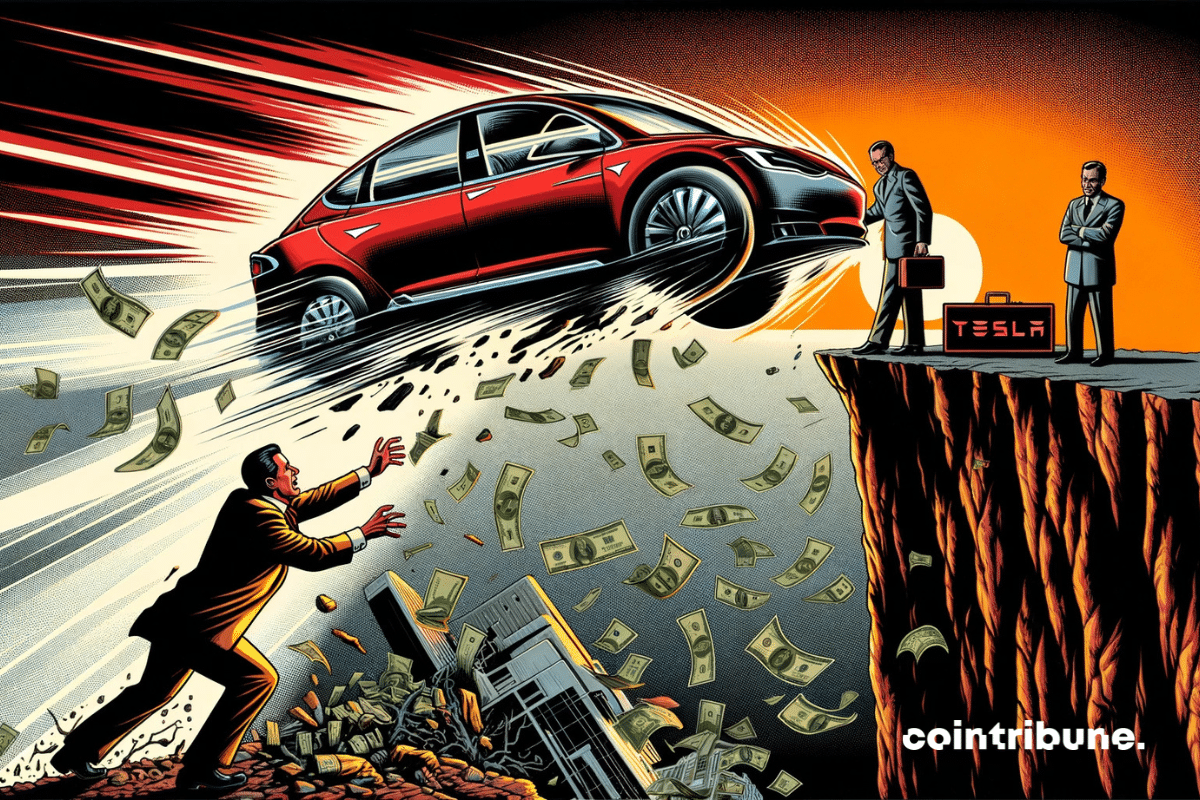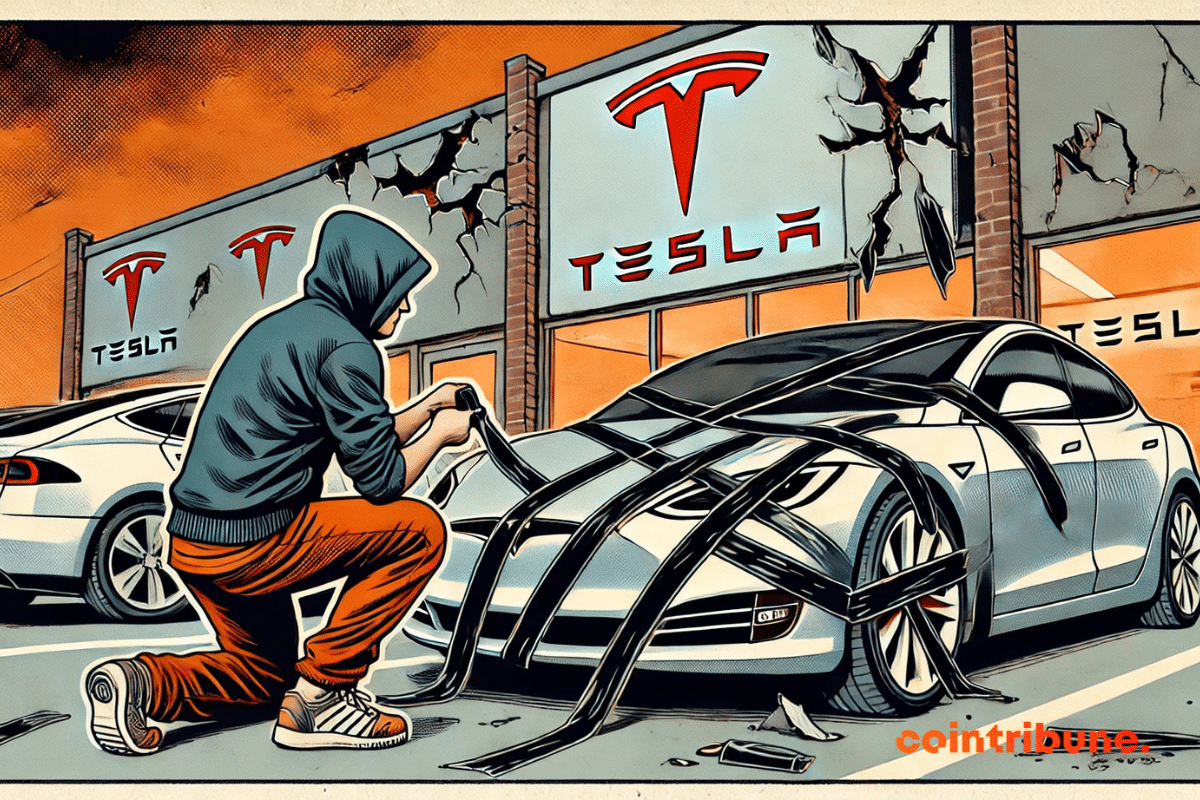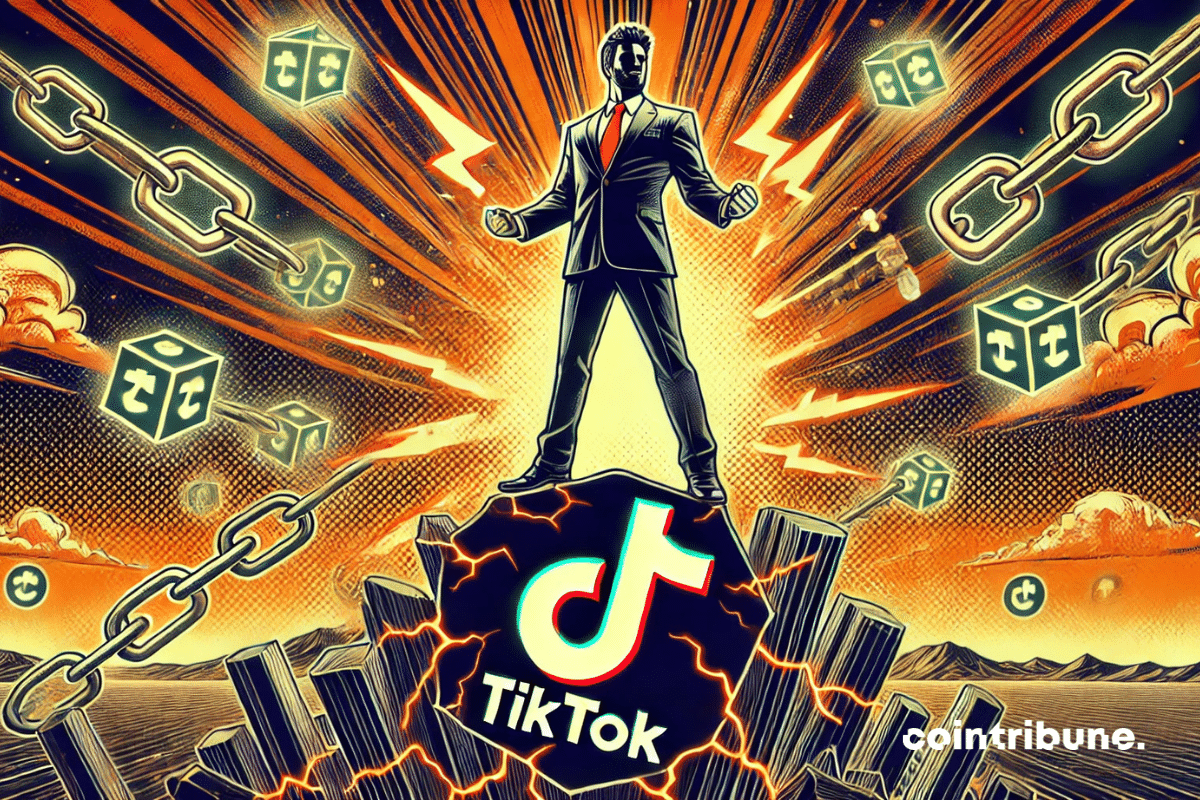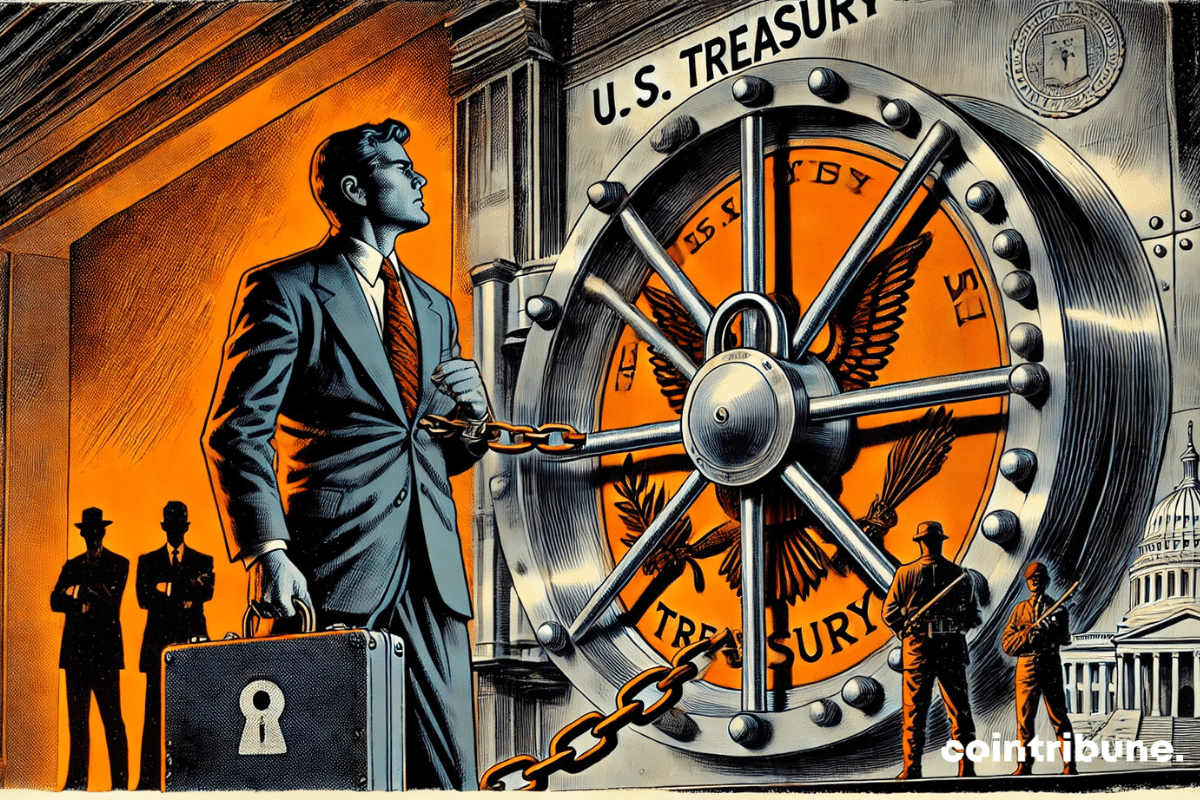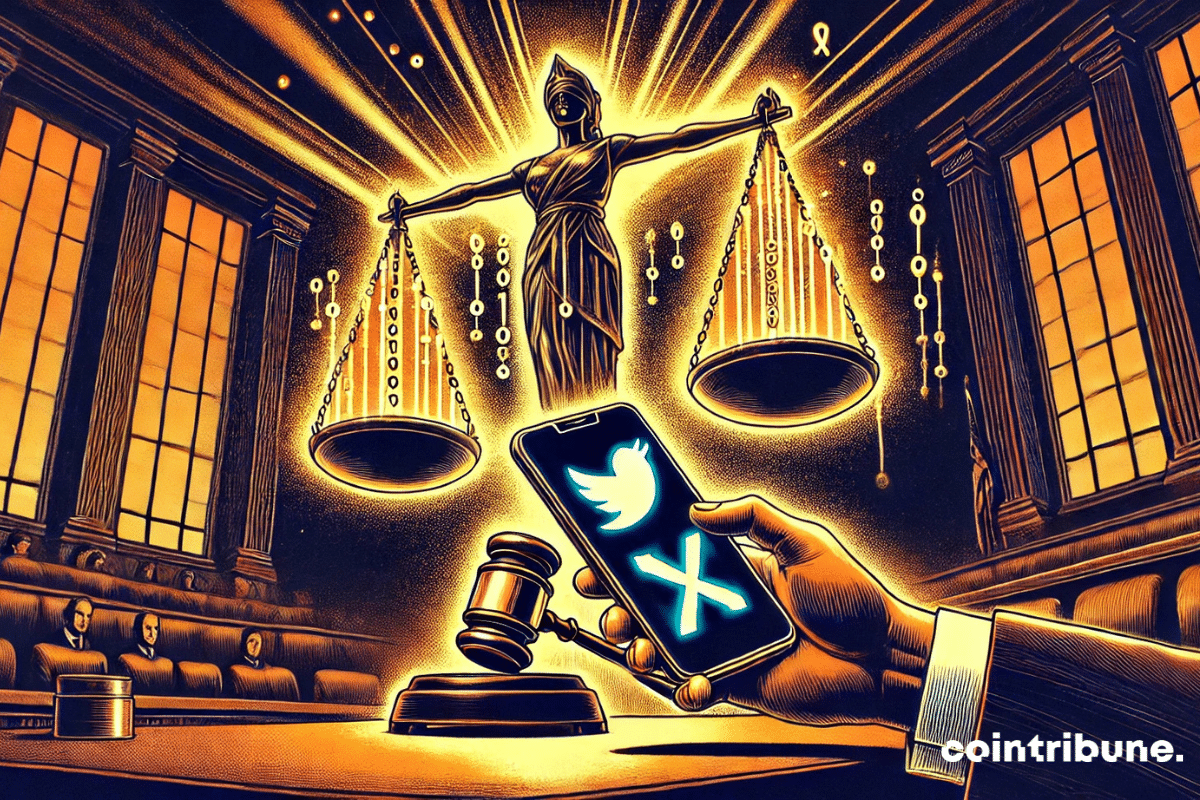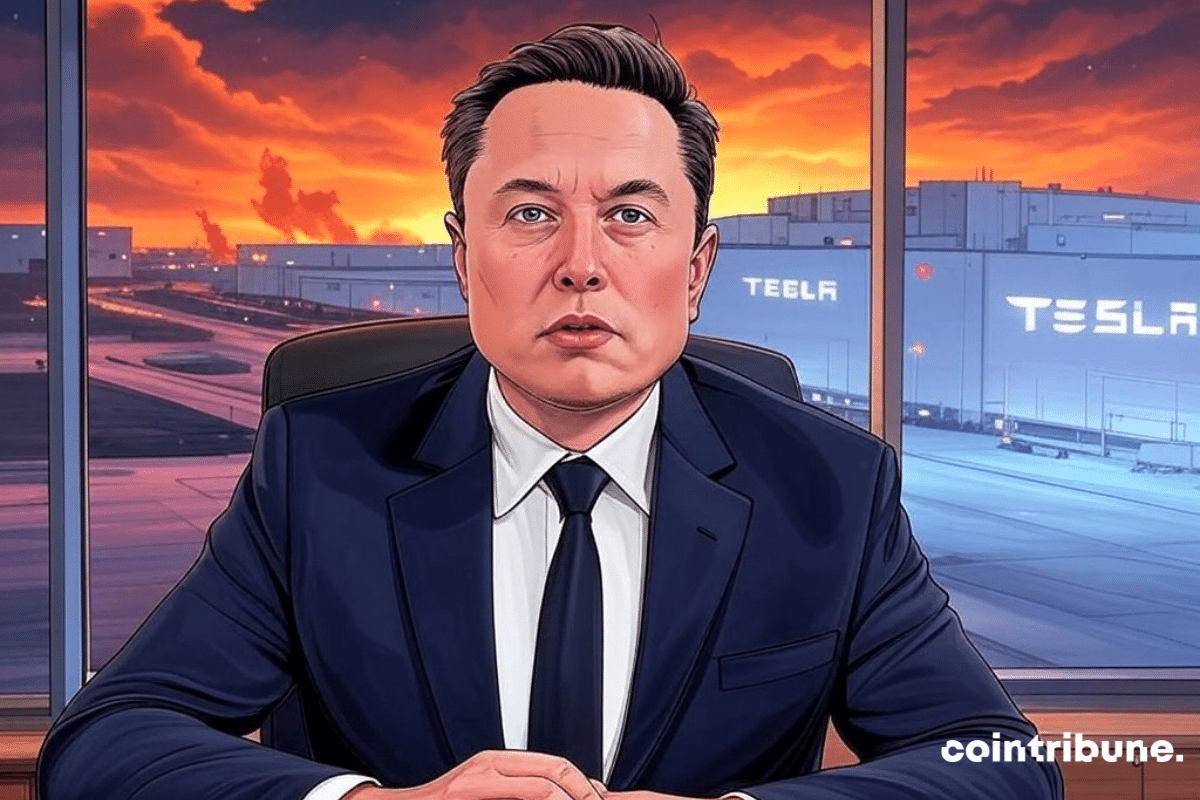Trump goes all out with a VIP dinner to save his memecoin, while crypto traders slip away with the cash. Cozy atmosphere, emptied wallets.
Elon Musk
Tesla falters, bitcoin holds strong, and Elon Musk finds himself divided. While the company faces a challenging quarter, its iconic CEO is trying to juggle leading Tesla, managing a strategic crypto portfolio, and his new government roles alongside Donald Trump. Amid falling profits, a steadfast loyalty to BTC, and a promise of a partial withdrawal from DOGE, Musk is playing on multiple fronts. But at what cost to Tesla?
Grok AI spits out a coin name, scammers seize it, CZ pockets 90 million fake dollars, and crypto rediscovers that artificial intelligence sometimes rhymes with very real scams.
OpenAI accuses Elon Musk of attempting to take control of AI through a fictitious takeover bid. An unprecedented legal battle begins!
Elon Musk, via his platform X, has filed a brief with the U.S. Supreme Court to challenge the IRS's practices regarding access to Coinbase user data. This move falls within a broader debate on privacy protection in the crypto space.
OpenAI raises $40 billion. Objective: generative AI, data centers, and a change of status to reach a $300 billion valuation. Details here!
Elon Musk's influence now transcends the boundaries of the technology industry. As the billionaire expands his grip on key sectors – from electric cars to social media – his unprecedented closeness with the SEC raises urgent concerns. Maxine Waters, an influential Democratic figure, sounds the alarm: Musk's privileged access to sensitive data from the financial agency could threaten market stability. Between conflicts of interest and systemic risk, the stakes go beyond mere corporate rivalries.
The billionaire Elon Musk's favorite cryptocurrency wobbles after a statement that is as brief as it is devastating. In a few words, Musk has reignited doubts about the future of Dogecoin. A turning point that could signal the beginning of a downward spiral for the famous memecoin.
Elon Musk announced on Friday evening the sale of his social network X to his own artificial intelligence company, xAI. This major transaction values X at $33 billion, slightly less than the initial purchase price of Twitter in 2022, but also includes $12 billion in debt.
The Securities and Exchange Commission (SEC) recently voted in a closed session to file a lawsuit against Elon Musk regarding the late disclosure of his acquisition of Twitter shares. Of the five commissioners, four voted in favor of the lawsuit, while Mark Uyeda, the SEC's interim chairman, was the only one to oppose it. Why? An explosive case involving regulation, tensions, and suspicions of political motivations.
On March 20, 2025, Elon Musk spoke live from Austin in an attempt to contain the storm shaking Tesla. As the stock collapses on the market and criticism intensifies, the CEO played the card of appeasement and loyalty, and relied on an offensive speech to maintain internal cohesion and reassure about the group’s future.
Tesla, once a star of the roads, is now heading towards the abyss: in France, outraged bosses and emptied fleets are signing the commercial death certificate of King Musk.
Trade wars are reshaping the global economy. They impact entire industries and reconfigure strategic balances. Among the companies directly affected, Tesla finds itself on the front line facing the new tariff measures imposed by Donald Trump. Tesla, for which China is the second-largest market after the United States, could pay a heavy price for this economic escalation.
Elon Musk wanted to conquer the stars, but his empire is wobbling on Earth. Tesla is falling, Trump is getting involved, and Wall Street is watching, skeptical, this great balancing act.
Larry Fink sounds the alarm: Bitcoin could lead to a major crisis. Discover his full analysis in this article!
The social media platform X suffered a large-scale cyberattack on March 10, 2025, disrupting user access. Elon Musk suggests a coordinated operation on a large scale, possibly orchestrated by a state.
Bots everywhere, humans nowhere! X, the temple of spam and greedy algorithms, makes CZ from Binance scream scam. Musk, on the other hand, proposes... to charge for entry.
Alexis Ohanian, co-founder of Reddit, has confirmed his intention to participate in the acquisition of TikTok's U.S. operations to transform it into a blockchain-based platform. This initiative comes in the context of the Chinese application facing a potential ban in the United States under the Trump administration.
Elon Musk's journey has always been marked by meteoric rises and brutal shocks. However, rarely has a week been as financially challenging for the head of Tesla and SpaceX. In just a few days, his fortune evaporated by $41 billion, a drop that raises questions about the strength of his companies as well as his controversial management. While Musk retains his status as the world's richest man, this unprecedented loss is symptomatic of the growing difficulties faced by Tesla, whose transition strategy towards artificial intelligence worries investors. Additionally, there are political tensions and criticisms of his omnipresence in various fields, which makes the situation even more complex. Amid colossal financial losses and a crisis of confidence, Musk finds himself under the spotlight for reasons very different from those that brought him success.
Imagine the scene: Elon Musk, black sunglasses and a MAGA cap firmly on his head, wielding a red chainsaw under the applause of a conservative crowd. Behind him, Javier Milei, Argentine president and figure of ultraliberalism, wears a triumphant smile. On Thursday, February 20, 2025, at the CPAC in Washington, the symbol is violent, almost punk. The chainsaw, gifted by Milei to Musk, embodies much more than a media gadget. It summarizes a declared war against bureaucracy, waged by two iconoclasts determined to redefine the rules of power.
Public financial management is a sensitive topic, especially when it is championed by a polarizing figure like Elon Musk. Since his appointment at the head of the Department of Government Efficiency (DOGE), the entrepreneur has promised a drastic reduction in federal spending to avoid a "bankruptcy of the United States." He announced that he has saved 8 billion dollars by canceling a government contract. A spectacular figure, but quickly contested by several media outlets: the contract in question was actually worth only 8 million dollars.
Under the guidance of Anonymous, the magnate Musk is exposed: crypto manipulations, power excesses, and sacrificed workers, the Tesla empire wobbles in the face of digital anger.
Artificial intelligence has never been closer to redefining the future of space exploration. As industry giants are engaged in a fierce battle to develop the most advanced language models, Elon Musk and xAI make a significant move with Grok-3, which outperforms its direct competitors and marks a major turning point in the race for AI. More than just a technological feat, this advancement paves the way for an even greater ambition: to send a Tesla Bot robot to Mars by 2026. A bold project that generates as much enthusiasm as it does questions.
Elon Musk's DOGE is literally about to "break down" the doors of the SEC in his quest to eliminate unnecessary government spending. This new step in Musk's crusade for government efficiency could transform financial regulation in the United States. An initiative sprinkled with a hint of personal vengeance?
On February 11, 2025, Elon Musk proposed a buyout offer of $97.4 billion to acquire OpenAI, the company behind ChatGPT. This initiative aimed to restore OpenAI to its original status as a non-profit research laboratory. However, Sam Altman, CEO of OpenAI, quickly declined this proposal while harshly criticizing Elon Musk in the process.
The fusion of technology and power is an equation that Elon Musk seems to have made his playground. From controlling Twitter (now X) to space initiatives with SpaceX, the billionaire has made numerous incursions into spheres traditionally reserved for states. His latest initiative, targeting the U.S. Treasury's payment system, has not succeeded this time. What was supposed to be a transparency operation regarding the management of financial flows has turned into an unprecedented legal confrontation, questioning the legality of such control. In light of the controversy and the risks of disclosing sensitive information, the judiciary has ruled and imposed an immediate ban on Musk and his collaborators.
The social network X, formerly Twitter, is once again under judicial investigation in France. On January 12, Deputy Eric Bothorel alerted the Paris prosecutor's office about the algorithms of Elon Musk's platform, suspected of manipulation. This investigation follows several ongoing legal actions against the platform.
Tesla, once the king of electric roads, sees its empire wobble: Europe turns away, Musk slips, and the competition hits the gas. Is the future without him?
While Elon Musk is launching rockets, his father Errol is catapulting a dubious memecoin. The goal? 200 million, a few family scandals, and a nice dose of crypto chaos.
When Musk invites Nakamoto on board, the markets tremble. Between humor and strategy, Dogecoin rises, buoyed by a breeze of euphoric speculation. The mystery thickens, profits are displayed.



